 |
| Prime Minister Pham Minh Chinh and delegates visit a photo exhibition on cooperative economy and cooperatives, produced by VNA. Photo: Duong Giang/VNA |
The forum was held directly at the Government Headquarters and online to 63 provinces and centrally-run cities.
Attending the forum were: Deputy Prime Minister Le Minh Khai, Head of the Steering Committee for Innovation and Development of Collective Economy and Cooperatives; Minister of Agriculture and Rural Development Le Minh Hoan; Minister, Chairman of the Ethnic Committee Hau A Lenh; President of the Vietnam Cooperative Alliance Cao Xuan Thu Van; representatives of leaders of ministries, departments, branches, central agencies; leaders of provinces and centrally run cities; representatives of embassies, international organizations, experts, scientists and the cooperative community.
The Economic Cooperation and Cooperative Forum is an annual event of the Government - where delegates share, exchange, and give important directions and decisions to remove difficulties, overcome challenges, take advantage of opportunities, and develop the collective economic and cooperative sectors.
 |
| Prime Minister Pham Minh Chinh chairs the 2024 Cooperative Economic Forum. Photo: Duong Giang/VNA |
Opening the Forum, Prime Minister Pham Minh Chinh said that, in order to achieve the goal of 100 years of the founding of the Communist Party of Vietnam and 100 years of the founding of the country, Vietnam strives to become a developing country with modern industry and high average income by 2030; and to become a developed country with high income by 2045. To achieve that goal, Vietnam mobilizes all resources in society to serve rapid and sustainable development, based on science, technology, innovation, suitable to the situation in Vietnam and world trends. In which, cooperative economy and cooperatives are identified as important components.
The process of formation and development of cooperatives in the world has gone through more than 200 years. In Vietnam, the collective economy, with cooperatives as its core, has also been formed and developed for nearly 70 years and has made important contributions to the cause of national liberation, construction and defense of the Fatherland.
The collective economic sector is one of the four important economic sectors in Vietnam's socialist-oriented market economy. At the 5th Central Conference, 13th tenure, General Secretary Nguyen Phu Trong emphasized: "...considering this an important economic sector, together with the state economy, it is increasingly becoming a solid foundation of the national economy... It must be clearly recognized that: Developing and improving the operational efficiency of the collective economy is the task of the entire political system.... is an important and regular political task".
According to the Prime Minister, collective economic development is an inevitable trend in the context of international integration, in line with Vietnam's socialist-oriented market economy. Collective economic organizations operate primarily for economic benefits; at the same time, they attach importance to political, cultural and social benefits in the area. In which, they promote the interests of members, cooperation, association, mutual assistance, aiming to enrich each member and the collective; and implement social policies in the area.
Over the past years, the Party, State, Government, all levels, sectors and localities have always paid attention to and issued and implemented many policies, mechanisms and strategies to develop the collective economy and cooperatives. Up to now, the collective economic sector has basically overcome the prolonged weakness. Cooperatives have basically completed the transition to a new model. The number of newly established cooperatives and cooperative unions has increased significantly, with more diversified development in terms of industries, scale and qualifications; better support for members, job creation and increased income for workers. The connectivity between cooperatives and with enterprises and other economic organizations has initially developed.
 |
| Prime Minister Pham Minh Chinh chairs the 2024 Cooperative Economic Forum. Photo: Duong Giang/VNA |
However, according to the Prime Minister, the collective economic sector of our country has not yet developed as targeted and required. The growth rate and contribution ratio of the collective economic sector to GDP are still low. Some members participating in cooperative activities are still formalistic, not fully exercising their rights and obligations. The efficiency of cooperative activities is not high, the organizational model is loose and inappropriate; the qualifications of management staff are limited. Most cooperatives and cooperative groups are small in scale, have a narrow scope of operation, and are not highly competitive. Joint ventures and associations between cooperatives and between cooperatives and other economic organizations are not popular.
Resolution No. 20-NQ/TW clearly states: "Although there are many preferential and support policies for the collective economy, they are scattered, mainly integrated, lacking concentration, inconsistent, lacking resources or not feasible."
Therefore, the Prime Minister requested delegates to exchange, discuss and share in a frank and responsible spirit, focusing on analyzing the development status of the collective economic sector and cooperatives. Including analyzing what has been done and what has not been done; existing problems, limitations, causes and lessons learned; analyzing opportunities, challenges and support needs in the collective economic sector and cooperatives in the coming time...
In particular, the Prime Minister hopes that delegates will propose breakthrough solutions to remove difficulties and obstacles, especially in attracting social resources; strengthening links between members participating in the collective economy, improving coordination efficiency between ministries, branches, localities, between the public and private sectors... so that the collective economic sector and cooperatives can fundamentally and strongly change their production and business methods, meeting the requirements of the new development situation.
Along with that, the Prime Minister also hopes that delegates will contribute ideas and propose support policies for the collective economic sector and cooperatives in a more practical, effective, focused and key manner, especially in line with the market mechanism, creating motivation for this sector to catch up, progress together and rise above other economic sectors in the socialist-oriented market economy, especially in terms of infrastructure, technology, capital, tax, investment; strongly promoting digital transformation, green transformation, circular economy, sharing economy, knowledge economy.
According to the Ministry of Planning and Investment, over the past 20 years, the general legal corridor and mechanisms and policies to support the collective economy have been focused on building and perfecting them to suit each stage of development. These include policies on training and fostering human resources; trade promotion; application of science, technology and engineering; support for investment in infrastructure development; land allocation and leasing policies; credit policies; support for product processing, etc.
Of which, from 2013 to 2021, more than 362,000 cooperative officials and members were trained and fostered; more than 2,600 agricultural cooperatives were supported with trade promotion with an amount of about 255 billion VND; in the period of 2013 - 2020, the whole country supported more than 5,800 cooperatives to apply and transfer technology with a total cost of about 268 billion VND; loan turnover for cooperatives and cooperative unions in the period of 2013 - 2021 was about 50,800 billion VND...
Cooperatives have basically completed the conversion to a new model in accordance with the law. The number of newly established cooperatives and cooperative unions has increased significantly, with more diverse development in terms of industry, scale and quality, better support for members, job creation and increased regular income for workers.
Cooperatives with a compact organizational structure, simple but practical activities, better meet the needs of flexible and short-term connections of the people. Connections between cooperatives with each other, with businesses and other economic organizations have initially developed.
The collective economic sector has basically overcome its prolonged weakness, contributed to building new rural areas, ensuring social security, order and safety, and gradually affirmed its important position and role in the national economy.
With new documents and policies of the Party and State, especially the attention and drastic direction of the Government and the Prime Minister, the solidarity, unity, joint efforts and efforts of the entire political system, along with the support of international organizations and investment cooperation of the cooperative community and the collective economic sector, cooperatives will have strong changes, sustainable development and complete the goals of Resolution No. 20-NQ/TW.
It is estimated that by 2023, the country will have more than 31,700 cooperatives, 158 cooperative unions and 73,000 cooperative groups. In 2022, the average revenue of cooperatives will reach nearly 3.6 billion VND/year, an increase of 35% compared to 2021; the average profit will be about 366 million VND/year, an increase of 71% compared to 2021; the average income of a regular worker in a cooperative in 2022 will be 56 million VND/person/year...
Source


![[Photo] Special flag-raising ceremony to celebrate the 135th birthday of President Ho Chi Minh](https://vphoto.vietnam.vn/thumb/1200x675/vietnam/resource/IMAGE/2025/5/19/1c5ec80249cc4ef3a5226e366e7e58f1)



![[Photo] Party and State leaders attend the special art program "You are Ho Chi Minh"](https://vphoto.vietnam.vn/thumb/1200x675/vietnam/resource/IMAGE/2025/5/18/6895913f94fd4c51aa4564ab14c3f250)
![[Photo] Party and State leaders visit President Ho Chi Minh's Mausoleum](https://vphoto.vietnam.vn/thumb/1200x675/vietnam/resource/IMAGE/2025/5/19/d7e02f242af84752902b22a7208674ac)


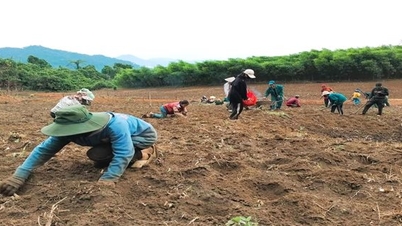




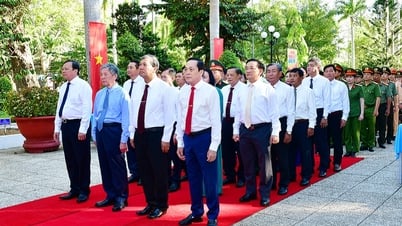



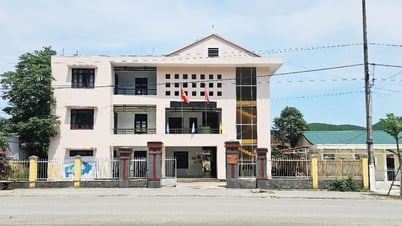






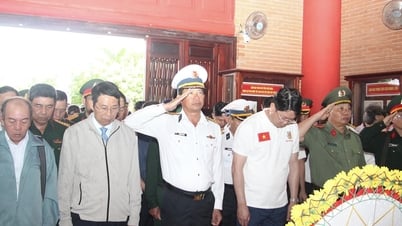
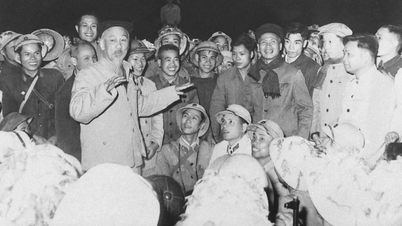


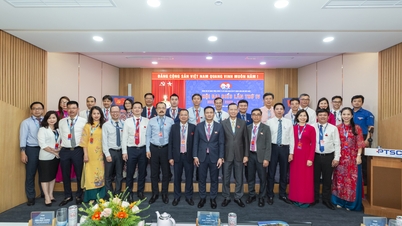
































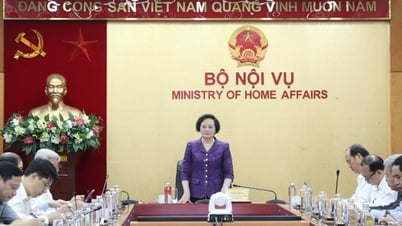







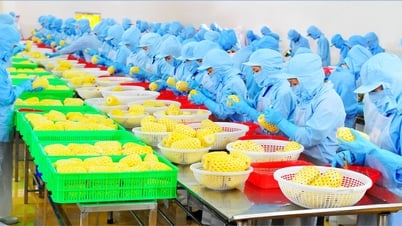






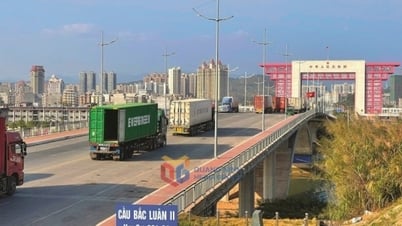



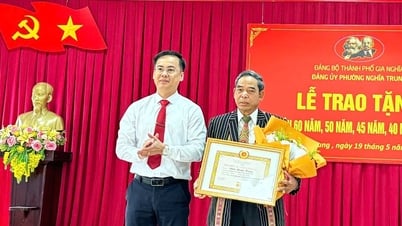

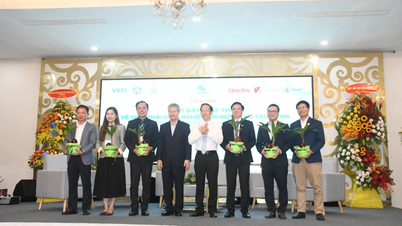








Comment (0)